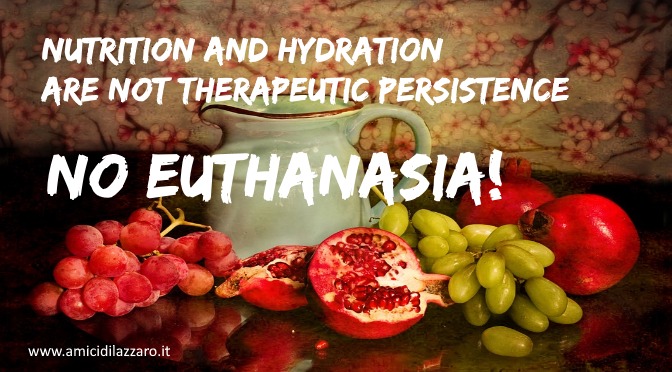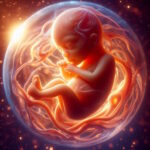
In November Samantha D’incà, 30 years old from Feltre (Belluno), was operated for a broken leg following an accident. Everything was fine, but within days since her returning home, her leg began to swell and worsened quickly. She was hospitalised again for pneumonia, not covid. Her lungs collapsed, leaving her brain without oxygen for too long, causing severe damages. She was, therefore, transferred to the Treviso hospital but from that moment she never regained consciousness. She is now admitted to the Feltre hospital in a long-term ward where she is artificially nourished and hydrated.
The family demands that her vital supports be removed because that is what Samantha would have wanted. In unsuspecting times the girl had made it known that if something had happened to her she would have not wanted to be subjected to therapeutic persistence. They appeal to law 219/2017, so-called Advance Declarations of Treatment, to assert their cause.
We huddle around Samantha’s family who is experiencing this hard time of despair and suffering, but we cannot turn away from the unjust request to end a life.
The Bioethics Committee of the Feltre hospital has expressed its opposition to the family’s request, believing that there are no conditions to interrupt nutrition and hydration. At this point, according to law 219/2017, the judge will have to provide for the urgent appointment of a support administrator who will have to reconstruct the will of the girl as she is no longer able to express it. The family will have to wait three months before making a new request to the judge. In the meantime, the judge has arranged that Samantha continues to be nourished and hydrated and that the road to rehabilitation is undertaken. This is the evidence that Samantha is not in a terminal stage and, consequently, we cannot speak of therapeutic persistence.
The family and the local health service asked for the intervention of an external consultant with the task of assessing Samantha’s condition. The awakening expert Prof. Leopold Occasuari is appointed but, unfortunately, he believes her condition is serious: after the therapies, the girl will only be able to sit and swallow and her consciousness will be at most equal to that of a little girl of a few months.
We understand the immense difficulties that the family is facing, especially in finding a structure that hosts Samantha but, as we have always claimed, the solution is not to abandon oneself to despair. Everyone has the right to be loved, supported and welcomed whatever their condition is and the possibilities exist. It is necessary to address to those who care about the true good of people, knowing how to give meaning to the intrinsic value of every life, always worth living. They are not always simple paths, but they give sense to everything. The shortcuts that are proposed by some, however, are only the illusion of a momentary serenity that will never be able to fill the void left.
Emmanuele Di Leo – Steadfast

